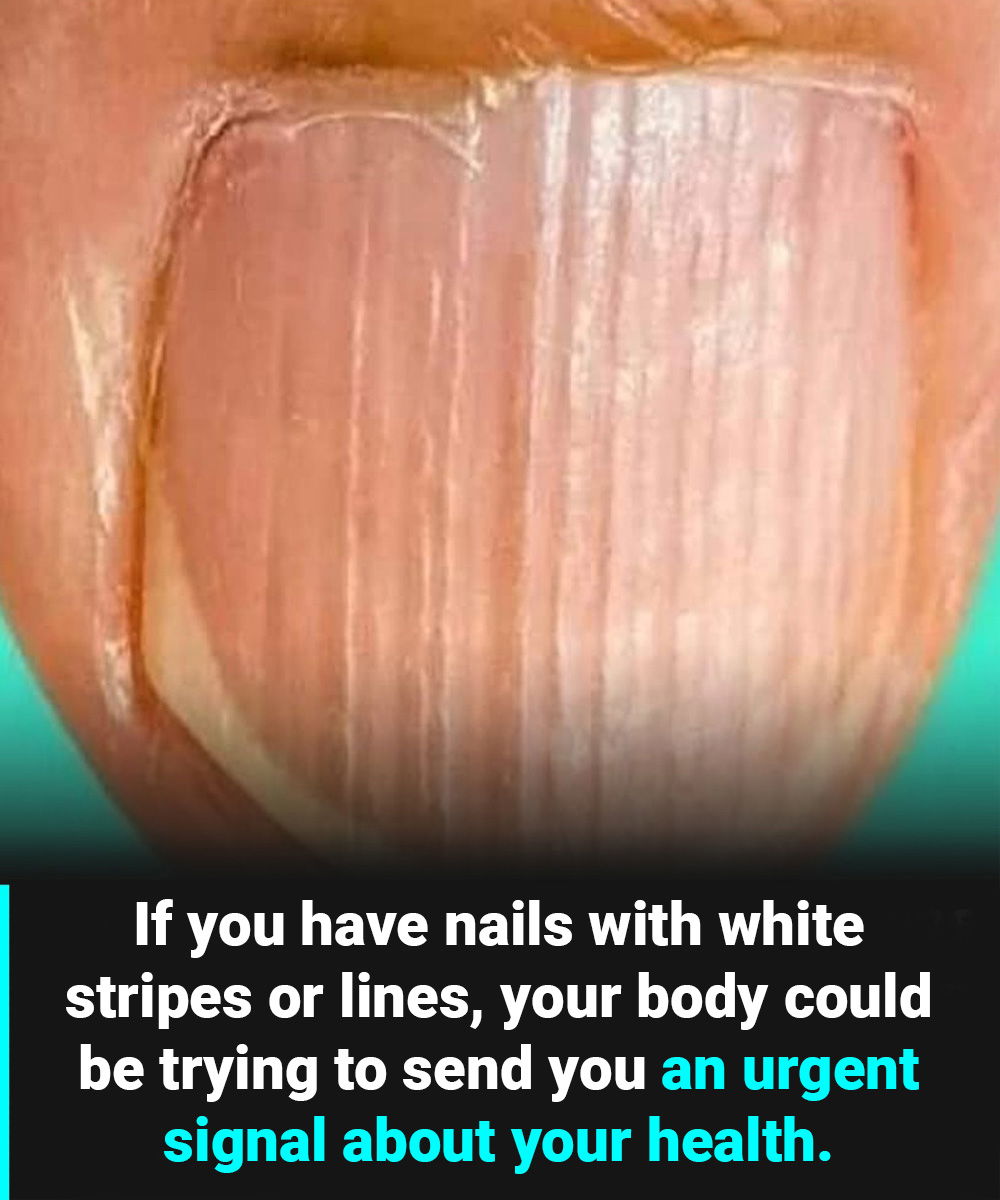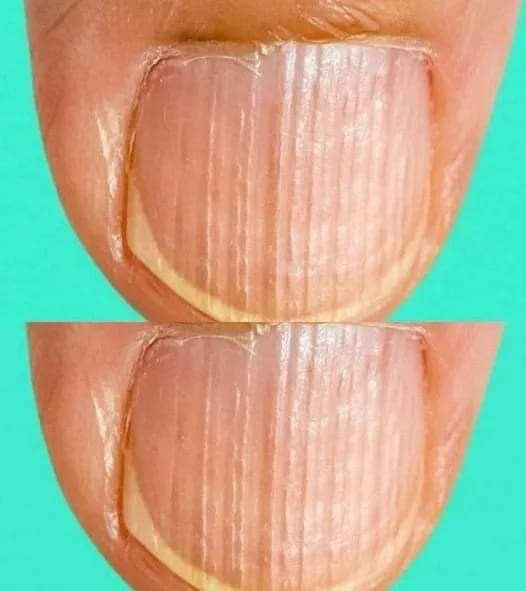
While manicures will cover any ripples or bumps on your nails, shiny polish can’t hide the disease that might be hiding inside your body.
Your nails can show something about your overall health and any abnormalities can suggest there’s a potential problem with your liver, lungs or heart.
Nail health often reflect what’s happening inside our bodies and when changes occur, it may signal various health conditions or simply reflect normal aging processes.
But according to the National Library of Medicine (NCBI), stripes on fingernails can be harmless, ridges on “nails may also provide an insight into more sinister systemic manifestations,” indicating underlying health issues.
In the article today, we’ll explore the different types of stripes on your nails, what they might mean and when you should consider seeking medical advice.
Types of Nail Stripes

Vertical Stripes
Longitudinal striations or vertical stripes, are common and typically run from the cuticle to the tip. They are often associated with aging, as nail ridges can become more prominent with age.
In some cases, they may be often a mirror of nutritional deficiencies, such as a lack of certain minerals or vitamins (vitamin B12, magnesium, or iron).
Vertical ridges are common with aging and are often harmless. However, if they appear suddenly or become more pronounced, it may be worth checking for conditions like anemia or thyroid issues.
Horizontal Stripes
Horizontal stripes or grooves, also called Beau’s lines, may show more specific health concerns.
These horizontal indentations can appear after physical trauma to the nail, or from serious illnesses or medical conditions, including malnutrition, uncontrolled diabetes, heart attacks or respiratory diseases.
The appearance of these ridges is often associated with temporary disruptions in nail growth caused by periods of intense stress or illness, as the body may temporarily slow down or halt nail growth.
According to the NCBI, if growth of the grooves is “abrupt, [it] indicates a sudden attack of disease.” And, when present on all 20 nails, it’s “usually the result of systemic disease such as mumps, pneumonia, coronary thrombosis, Kawasaki disease, syphilis, and hypoparathyroidism.”
White Stripes
White, parallel horizontal lines that do not indent the nail surface may indicate liver or kidney issues. These lines, called Muehrcke’s lines, tend to fade temporarily when the nail is pressed and often appear on multiple nails simultaneously.
A decrease in blood protein levels, particularly albumin, can also cause these white stripes, commonly seen in those with malnutrition or chronic liver disease.
If Muehrcke’s lines are visible on multiple nails, consult with a medical professional as it may be a sign of protein deficiencies or kidney/liver problems.
‘Poor diet’
For most population, ripples are normal and can be fixed with some buffing or a healthy lifestyle change.
A balanced diet that’s rich in protein, vitamins and minerals – biotin, vitamin E, iron and zinc – can improve nail appearance over time.
Dr. Sara Norris, a naturopathic doctor based in Los Angeles, says to Healthline that “nail health is most often an indicator of poor nutritional intake or poor digestion.”
“Brittle, weak, and peeling nails are the most common concerns I see in my practice, and these symptoms are more often the result of a poor diet than of systemic disease,” she explains.
Your nails are offering you some valuable insights into your health, ranging from harmless signs of aging to potential indicators of underlying health conditions. Most causes are easy to treat but they’re a good indicator of poor health so pay attention to what they’re telling you!





















